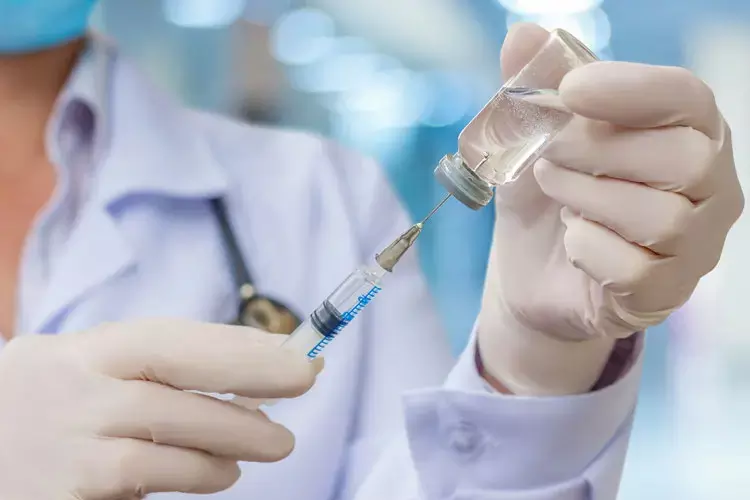- Home
- Medical news & Guidelines
- Anesthesiology
- Cardiology and CTVS
- Critical Care
- Dentistry
- Dermatology
- Diabetes and Endocrinology
- ENT
- Gastroenterology
- Medicine
- Nephrology
- Neurology
- Obstretics-Gynaecology
- Oncology
- Ophthalmology
- Orthopaedics
- Pediatrics-Neonatology
- Psychiatry
- Pulmonology
- Radiology
- Surgery
- Urology
- Laboratory Medicine
- Diet
- Nursing
- Paramedical
- Physiotherapy
- Health news
- Fact Check
- Bone Health Fact Check
- Brain Health Fact Check
- Cancer Related Fact Check
- Child Care Fact Check
- Dental and oral health fact check
- Diabetes and metabolic health fact check
- Diet and Nutrition Fact Check
- Eye and ENT Care Fact Check
- Fitness fact check
- Gut health fact check
- Heart health fact check
- Kidney health fact check
- Medical education fact check
- Men's health fact check
- Respiratory fact check
- Skin and hair care fact check
- Vaccine and Immunization fact check
- Women's health fact check
- AYUSH
- State News
- Andaman and Nicobar Islands
- Andhra Pradesh
- Arunachal Pradesh
- Assam
- Bihar
- Chandigarh
- Chattisgarh
- Dadra and Nagar Haveli
- Daman and Diu
- Delhi
- Goa
- Gujarat
- Haryana
- Himachal Pradesh
- Jammu & Kashmir
- Jharkhand
- Karnataka
- Kerala
- Ladakh
- Lakshadweep
- Madhya Pradesh
- Maharashtra
- Manipur
- Meghalaya
- Mizoram
- Nagaland
- Odisha
- Puducherry
- Punjab
- Rajasthan
- Sikkim
- Tamil Nadu
- Telangana
- Tripura
- Uttar Pradesh
- Uttrakhand
- West Bengal
- Medical Education
- Industry
Immunoglobulin in high dose boosts treatment response in dermatomyositis: ProDERM study

Dermatomyositis (DM) is an inflammatory myopathy characterized by distinct skin manifestations and muscle weakness. Although the precise pathogenesis is unknown, DM likely results from autoimmune processes. A recent study suggests that intravenous immunoglobulin (IVIg) is safe and effective in the treatment of DM. The study findings were at the opening plenary abstract session of the EULAR 2021 Congress.
Current therapies for DM encompass corticosteroids and other immunosuppressants. However, none of these therapies was proven by randomized controlled phase 3 studies. Intravenous immunoglobulin (IVIg) has been used off-label as adjuvant therapy in DM but is not indicated for DM due to lack of proven efficacy in a large randomized controlled trial. Therefore, Dr Rohit Aggarwal and his team conducted the first large phase-3 study to demonstrate the safety/tolerability and efficacy of IVIg in DM patients.
ProDERM study is the first large international, double-blind, 2 period, phase-3 randomized controlled trial. In period 1(16 weeks), the researchers randomly assigned 95 adult patients with active DM to receive either high dose IVIg (2g/kg every 4 weeks) or a placebo. At the end of 16 weeks, participants receiving IVIG without clinical worsening, and all those in the placebo group, entered the 24-week open-label extension period (Period 2), with the same every-4-week treatment schedule. Patients who showed clinical worsening at 2 consecutive visits between week 8 and week 16 were switched to the alternate treatment arm. The major outcome assessed was the proportion of responders in the IVIg vs placebo arm at week 16, where the response was defined per 2016 ACR/EULAR Myositis response criteria of at least minimal improvement [Total Improvement Score (TIS) ≥ 20 points)] and without clinical worsening at 2 consecutive visits up to week 16.
Key findings of the study were:
- The study met the primary endpoint at week 16, the researchers noted that the proportion of responders being significantly higher in the IVIg group (37/47; 78.7%) as compared to the placebo group (21/48; 43.8%).
- In the analysis of responders per improvement category at Week 16, they observed a 45.2% higher response rate for at least moderate improvement and a 23.6% higher response rate for at least major improvement in the IVIG group as compared to the placebo group.
- At 16 weeks, the mean TIS score was more than twice as high in those receiving IVIg than in those randomized to placebo (48.4 vs 21.6).
- After switching to IVIG in the Extension Period, they noted the participants s in the placebo group attained a similar response rate at Week 40 as did the IVIg treated patients at Week 16.
- They reported that secondary endpoints, including all the sub-components of TIS except muscle enzyme, as well as Cutaneous Dermatomyositis Disease Area and Severity Index had statistically significant improvement under IVIg treatment compared to placebo treatment.
- They further noted that the safety and tolerability of IVIG were consistent with previously reported safety outcomes for the drug.
The authors concluded, "This is the first large international phase III randomized, placebo-controlled trial demonstrating the efficacy and safety of IVIg as a treatment for patients with DM."
For further information:The ProDERM Study Abstract-EULAR 2021
Josepha James (Msc Cinical Research) joined Medical Dialogues as a writer in Medical News Section in 2020 . She covers news in several medical specialties from both national and international journals and associations. She has completed Bachelors in Physician Assistant and then pursued Masters in Clinical Research. She can be contacted at editorial@medicaldialogues.in.
Dr Kamal Kant Kohli-MBBS, DTCD- a chest specialist with more than 30 years of practice and a flair for writing clinical articles, Dr Kamal Kant Kohli joined Medical Dialogues as a Chief Editor of Medical News. Besides writing articles, as an editor, he proofreads and verifies all the medical content published on Medical Dialogues including those coming from journals, studies,medical conferences,guidelines etc. Email: drkohli@medicaldialogues.in. Contact no. 011-43720751


